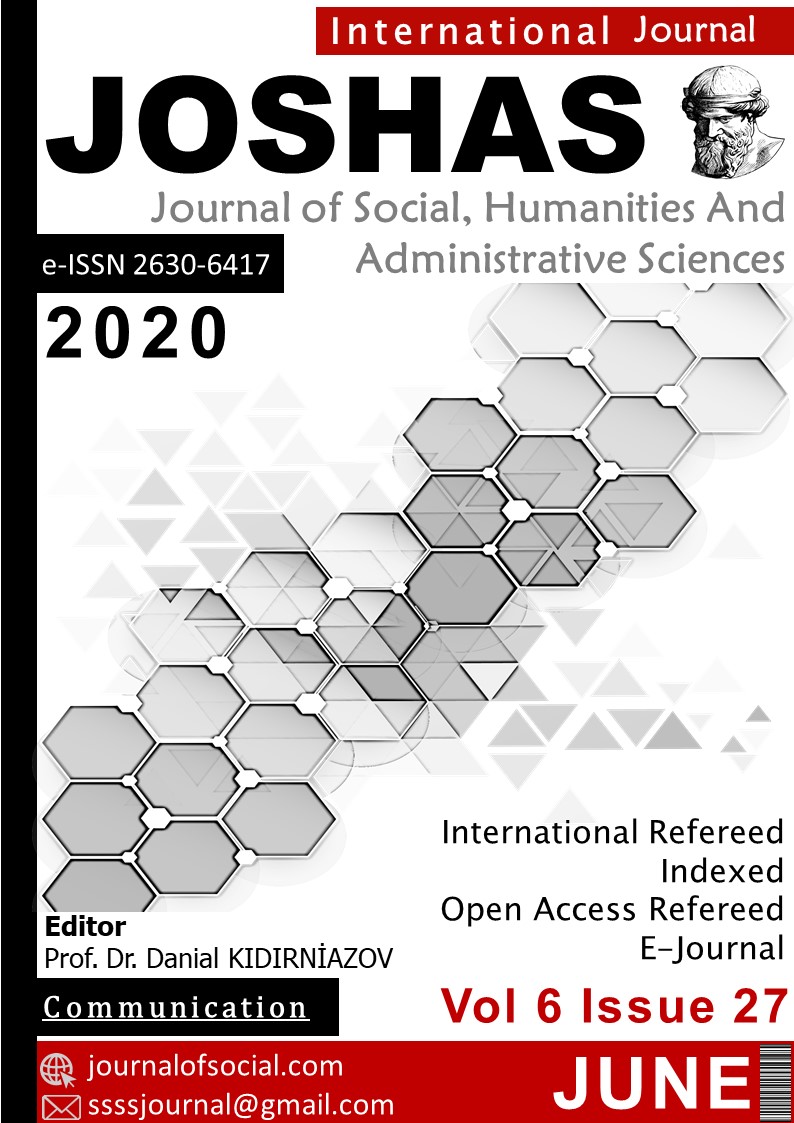Author :
Abstract
Antik Yunan müzik teorisi, Avrupa, Batı ve büyük ölçüde dünya müzikolojisinin temelini oluşturur. Müzik biliminin kullandığı temel kavramlar ve terimler de dahil olmak üzere çoğu, antik Yunan müzik öğretisinden doğrudan ödünç alınmıştır. Bunlar arasında - armoni, ton, diyatonik, melodi, ağıt (ode), ritim, metre, arsis, bas, diyez, hemiola, kanon, marş, homofoni, troparion, psalm, sistem, teknik, triton, tetrakord, iambik, mod isimleri (Dorian, Frig, Lidya vb.). Hatta kelimelerin kendileri - müzik, teori, ayrıca Yunanca kökenlidir. Bilimin kavramsal düzeneği, müzikal-teorik düşünme yöntemleri doğrudan Yunanlılardan Batı müzik teorisine aktarılmıştır. Yunan müzik teorisinin yapısının Batıda bir ölçüde korunduğunu söyleyebiliriz. Armoni kavramı sadece müzikte değil, bir bütün olarak sanatta da en önemli bilim olarak geçerlidir. Pisagorcuların zamanından gelen armoni kavramı her zaman birçok felsefi öğretide ortaya çıkar. Kategori olarak, armoni, genel olarak şeylerin var olabileceği ve gelişebileceği için sabitleme, birleşme ve bağlama güçlerini ima eder. Bu anlamda, antik Pisagor felsefesinin açıklaması, armoni (uyum) olmadan dünyanın çökeceği doğrudur.
Keywords
Abstract
Ancient Greek music theory is the basis of European, Western and largely world musicology. Most of them, including the basic concepts and terms used by the science of music, have been borrowed directly from ancient Greek music teaching. Among them - harmony, tone, diatonic, melody, lament (ode), rhythm, meter, arsis, bass, sharps, hemiola, canon, starter, homophony, troparion, psalm, system, technique, triton, tetrakord, iambic, mod names (Dorian, Phrygian, Lydian, etc.). The words themselves - music, theory are from Greek origin. The conceptual mechanism of science and the methods of musical-theoretical thinking were directly transferred from the Greeks to the Western music theory. We can say that the structure of Greek music theory is preserved to a certain extent in the West. The concept of harmony is valid not only in music, but also in the arts as the most important science. The harmonic concept, which came from the time of the Pythagorean, always appears in many philosophical teachings. By category, harmony implies the forces of fixing, merging and bonding, as things can exist and develop in general. In this sense, the explanation of the ancient Pythagorean philosophy is true that the world will collapse without harmony.
Keywords
- Боэций, 1995, “De institutione musica”,1. Kitap, başlık 10-11; çeviri Герцман Е. В. s. 310-311. 13 Filogenez - canlılar dünyasının genel olarak ve çeşitlerinde - türler, cinsler, aileler, sınıflar içinde - tarihsel gelişim sürecidir.
- Герцман, Е. В. 2004, “Пифагорейское музыкознание. Начала древнегреческой науки о музыке”, s . 7-78.
- Герцман, Е. В. 1986, “Античное музыкальное мышление”, Ленинград.
- Герцман Е. В. 2003, “Пифагорейское музыкознание. Начала древнегреческой науки о музыке”. Дворецкий, И. Х. 1976, БОЛЬШОЙ ЛАТИНСКО-РУССКИЙ СЛОВАРЬ.
- Лосев А. Ф. 1963, “История античной эстетики. Ранняя классика”. Cilt 1, Москва, ss. 265-266. Лосев, Ф.А. 1960, “Античная музыкальная эстетика” Москва, s. 164.
- Ливанова, Т.Н. 1983, “История западноевропейской музыки до 1789 года”, Москва, Музыка, s. 696.
- Маковелъский, А. 1976, “Арисmоmелъ” Сочинения в четырех томах. Cilt. 1. Москва, s. 384, Alıntı s. 31.
- Музыкальная энциклопедия. 1976, Cilt. 3, Mосква, s. 650.
- Платон. 1971, Сочинения в трех томах, Том 3, Часть 1, Москва, ss. 15; 195-198; 470-484. Платон. 1968, Сочинения в трех томах. Том 1. Москва, s. 125.
- Платон. 1972, Сочинения в трех томах. Том 3, Часть 2, Москва, ss. 140-142, 273, 290-299. Платон. Сочинения в трех томах. Том 3, Часть 2. s. 131.
- Платон. 1965, Ион,”Избранные диалоги”, Çeviri Я.М.Боровского, s. 533.
- Русакова А. В. 2000, Трактат Аристида Квинтилиана “О мусическом искусстве”. Doktora Tezi, Москва, МГК.
- Холопов, Ю.Н. 2006, Сборник “От Гвидо до Кейджа: Полифонические чтения”. Москва, ss. 315-338.
- Хайдеггер, М. 1993, “Время и бытие”, Çev. В. В. Бибихина. Москва.
- Шестаков, В. П. 1973, “Гармония как эстетическая категория”. Москва, ss. 20-23. Jan С. 1895-1899, “Musici scriptores graeci”, Leipzig.





